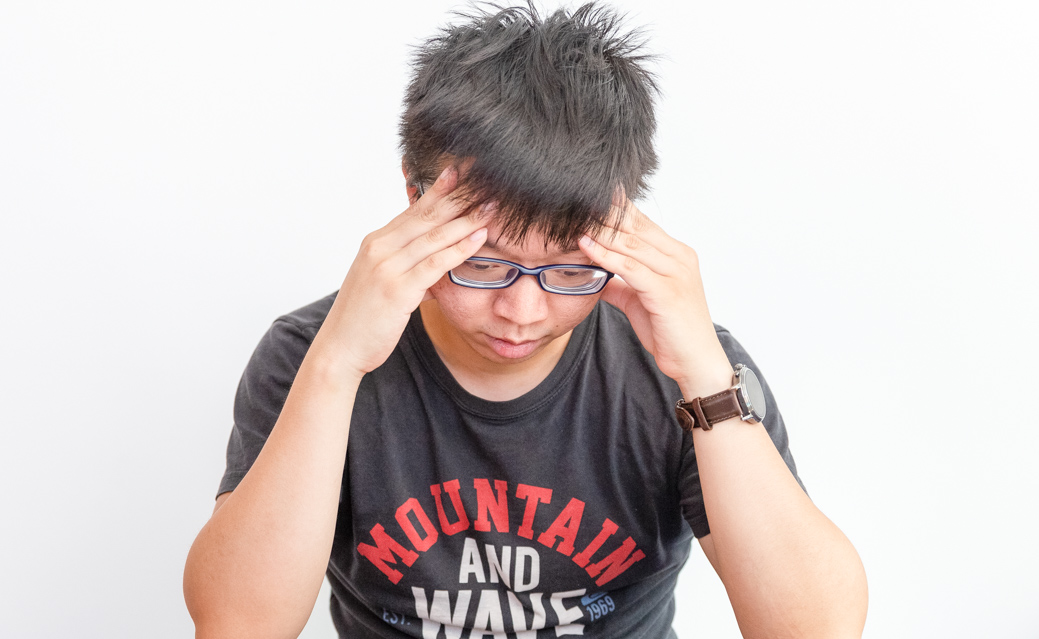Can changing our attitude help us prevent burnout?
Planning ahead for an online semester may be the key to avoid burnout.
The unexpected changes brought on by the pandemic have revealed a lot about the strengths and limits of students. The consequences of work-life imbalances, which existed long before the pandemic, intensified during the lockdown.
Studies show that the general population’s mental health fell into a steep decline, as reports of burnout among students and employees saw a steady increase. In April 2021, a survey conducted by the Ohio State University’s Office of the Chief Wellness Officer found that “anxiety, depression, and burnout are all on the rise” amongst university students. Likewise, a report released in October 2020 by Statistics Canada found that Canadian youth were “experiencing the greatest declines” in mental health during the pandemic compared to pre-pandemic levels. Like me, many other students felt severely overworked and thinly stretched.
In the first few months of the pandemic, I welcomed the shift to online learning. At the beginning of 2020, I felt I had a lot more control over my environment. I had misplaced hope that the shift to online classes would allow me to do better—so, I enrolled in more classes and took on more work. But by the end of 2020, I started losing interest in my classes. By February of 2021, I was drowning in coursework as deadline after deadline crept up on me. I felt like everything and everyone around me was moving much faster than I was. The changes were gradual, but by the end, I had gone through a complete attitude shift.
Dr. Will Huggon, who teaches psychology at the University of Toronto Mississauga (UTM), defines burnout as the build-up of too much stress: “It’s when you have no energy left for mental, emotional, or physical tasks,” he explains.
Burnout has been a cause of concern for many years, with some labelling it an epidemic. In 2019, the World Health Organization (WHO) defined burnout as an occupational phenomenon “resulting from chronic workplace stress that has not been successfully managed.” The WHO associates burnout with feelings of exhaustion, increased distraction from one’s work, and reduced productivity.
Stress is a widely accepted norm of life, but the stress of Covid-19 magnified the effects of burnout, allowing it to permeate the lives of many students.
“The unknown is stressful,” explains Professor Huggon. “Health concerns are stressful, new rules and readjustment to those rules is stressful.” Theoretically, getting rid of stress will get rid of burnout. Sounds simple enough. But sometimes, the solution to burnout seems beyond our reach.
No amount of yoga, meditation apps, gym, or (my personal go-to) the “Navy SEAL breathing technique” I once saw in a Seth Rogan film, will fix the kind of stress that has become the norm in today’s high-strung world. And no, mentally checking out for the day and watching M*A*S*H reruns on television is not always a feasible option. So, what can you do to avoid accumulating stress towards the end of the semester?
Individual attitudes certainly play a role in burnout. Overestimating our ability to adapt to sudden changes can cause a lot of stress. “In general, students didn’t like the idea of online learning before the pandemic,” explains Dr. Huggon. Since the shift to online learning, students’ attitudes are “affected by the perception of how fair the course is, and the integrity of the course compared to online learning.”
Perceptions and attitudes are created through “long-term learning” and are difficult to adjust to unfavourable situations. Dr. Huggon teaches PSY320: Social Psychology: Attitudes, a course that explores the impact of attitudes on behaviour and how they can be changed. One way to circumvent these types of barriers is to plan ahead.
Online classes often convince students that work will be done more efficiently, but the consistent result is that, according to Dr. Huggon, students are “not able to deal with many papers and tests around the same date.” He elaborates that “additional courses and juggling that with work is stressful.”
This upcoming academic year may be a good time to re-evaluate our perceptions of what we can handle in unpredictable times, while prioritizing time for “de-stressing activities.” Balancing schoolwork and downtime may prevent burnout in the long-term.
While changing attitudes and engaging in de-stressing activities can work to mitigate the effects of burnout from an individual perspective, it may also help to consider the sources of stress—the organizational structures that support overworking. By considering the individual factors and the institutional factors that lead to burnout, perhaps we can arrive at a more comprehensive idea of mental well-being and develop better methods to improve mental health and prevent burnout in the future.
Social isolation is another factor that affects burnout. An increase of social engagement provides a release from the stresses of work-life and academics. “Social isolation is extremely stressful. We usually seek out others when we’re stressed, but this is difficult when we’re supposed to be physically distanced from one another,” adds Dr. Huggon.
Adapting individual attitudes to unexpected conditions will significantly reduce the potential of burning out. As provinces gradually reopen and some in-person classes resume, opportunities to socialize will increase and the frequency of burnout may decrease—thus returning to the “normal” student life as we know it.
Staff Writer (Volume 48) — Kiara is in her third year, completing a History and Political Science Specialist. When she's not writing essays or stressing about deadlines, she enjoys keeping up with global conflicts, watching clips of British panel shows, playing Valorant, and buying books she fully intends to but never manages to read.

